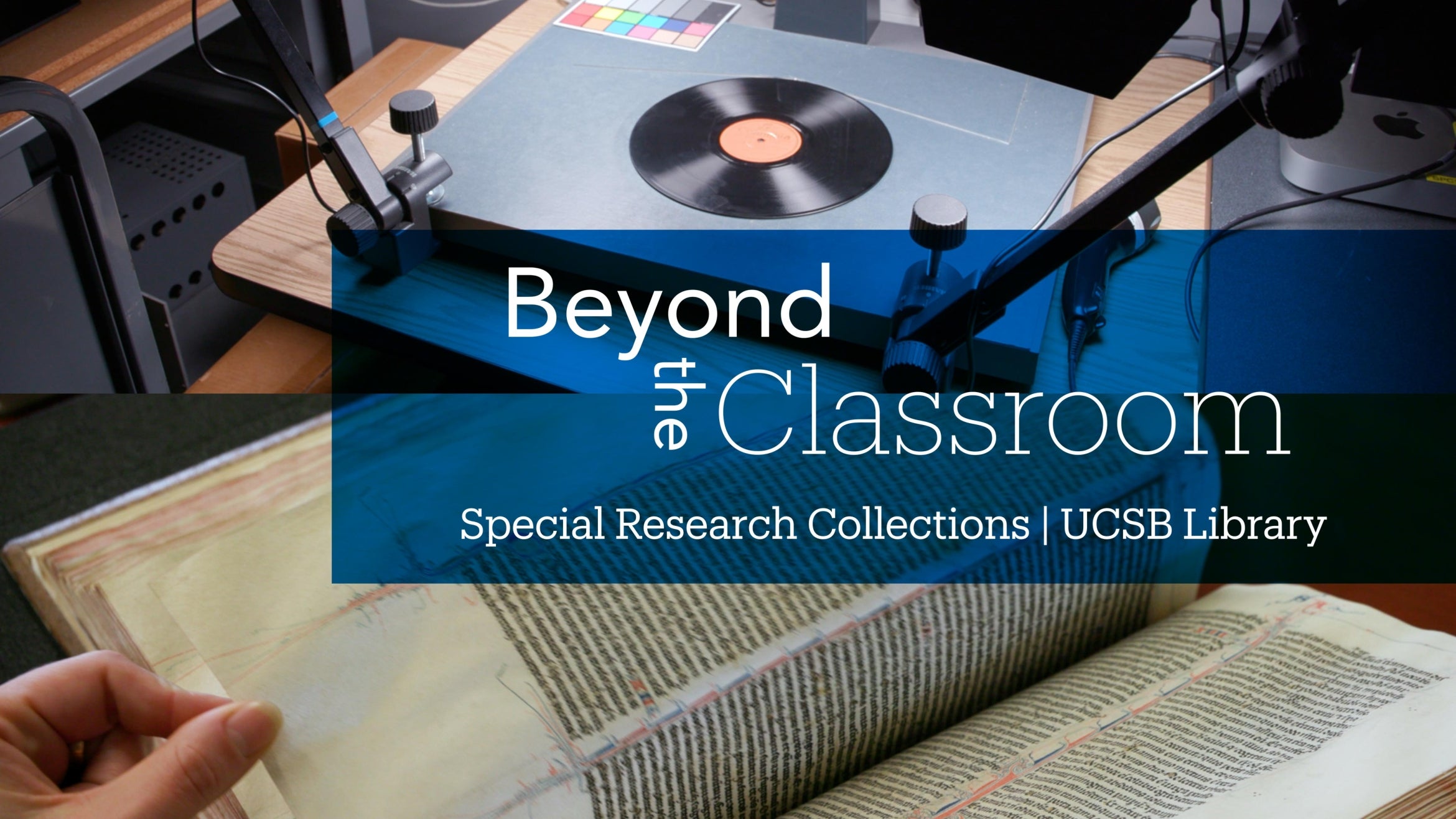Five faculty members at the University of California, Santa Barbara have recently published new books on topics ranging from Buffy the Vampire Slayer to the Japanese Ground Self Defense Force.
In "Undead TV: Essays on Buffy the Vampire Slayer" (Duke University Press, 2007), Lisa Parks examines how the prime-time television drama became a prominent marker of industrial, social, and cultural change. The associate professor of film and media studies edited the book with Elana Levine, an assistant professor of journalism and mass communication at the University of Wisconsin, Milwaukee. Essay contributors explore critical issues such as stardom, gender identity, spectatorship, fandom, and intertextuality. Collectively, they reveal how a vampire television series set in a sunny California suburb managed to provide some of the most biting social commentaries on air while exposing the darker side of American life.
Parks is also the author of "Cultures in Orbit: Satellites and the Televisual" (Duke University Press, 2005), which focuses on the use of satellites by broadcasters, military officials, archaeologists, and astronomers.
A dramatic change in the thinking and practice regarding emotional restraint in 13th-century Italian communes is the subject of history professor Carol Lansing's book "Passion and Order: Restraint of Grief in the Medieval Italian Communes" (Cornell University Press, 2007). A specialist in the society, politics and culture of medieval Italy, Lansing examines the conscious effort among residents of these communes to change what was considered the appropriate public reaction to death. Driven by politics and understood in terms of gender, this shift threw into sharp relief connections among urban politics, gender expectations, and understandings of emotionality.
In "England's First Family of Writers: Mary Wollstonecraft, William Godwin, Mary Shelley" (Johns Hopkins University Press, 2007), Julie A. Carlson, a professor of English, demonstrates how and why the works of these individuals can best be understood within the context of the family unit in which they were created. The first to consider their writing collectively, Carlson finds in the Wollstonecraft-Godwin-Shelley dynasty a family of writers whose works are in intimate dialogue with each other. Construing the ways in which this family's works minimize the differences between books and persons, writing and living, Carlson offers an account of the extent to which books can live and inform life and death. She also examines the unorthodox clan's status as England's first family of writers and explores how, over time, their reception has demonstrated ongoing public resistance to those who critique family values.
Francis Dunn, a professor of classics, examines the widespread social and cultural disorientation experienced by Athenians in a period that included the revolution of 411 B.C.E. and the military misadventures in 413 and 404 in his book "Present Shock in Late Fifth-Century Greece" (University of Michigan Press, 2007). The late fifth century was a time of vast cultural and intellectual change, ultimately leading to a shift away from Athenians' traditional tendency to seek authority in favor of a greater reliance on the authority of the present. At the same time, Dunn argues, writers and thinkers not only registered the shock, but also explored ways to adjust to living with this new sense of uncertainty. Using literary case studies from this period, he shows how narrative techniques changed to focus on depicting a world in which events were no longer wholly predetermined by the past, impressing upon readers the rewards and challenges of struggling to find their own way forward.
Dunn is also the author of "Classical Closure: Reading the End in Greek and Latin Literature (Princeton University Press, 1997), "Tragedy's End: Closure and Innovation in Euripidean Drama (Oxford University Press, 1996), and is co-editor of "Beginnings in Classical Literature" (Cambridge University Press, 1992).
In her new book, "Uneasy Warriors: Gender, Memory, and Popular Culture in the Japanese Army" (University of California Press, 2007), Sabine Frühstück, a professor of modern Japanese cultural studies, draws on anthropological and historical research to describe the unusual case of Japan's non-war-making military. Following World War II, Japan's postwar constitution forbade the country to ever again wage war or create an army. However, with the emergence of the cold war in the 1950s, Japan was urged by the United States to establish the so-called Self-Defense Forces as a way to bolster Western defenses against the tide of Asian communism.
To conduct research for her book, which examines the Japanese Ground Self Defense Force as an army that, although trained for combat, serves nontraditional military needs, Frühstück donned army fatigues and spent a week in basic training at a military base on the island of Honshu. She was the first scholar ever permitted to observe basic Self Defense Forces training as an active participant.
In her previous book, "Colonizing Sex: Sexology and Social Control in Modern Japan" (University of California Press, 2003), Frühstück examined the State's attempts to control sexual behavior among soldiers in the Imperial Army.
Note to editors: Contact information for the authors is listed below.
Lisa Parks, (805) 893-5547, parks@filmandmedia.ucsb.edu
Carol Lansing, (805) 893-8399, lansing@history.ucsb.edu
Julie A. Carlson, (805) 893-8478, jcarlson@english.ucsb.edu
Francis Dunn, (805) 893-4202, fdunn@classics.ucsb.edu
Sabine Frühstück, (805) 893-5120, fruhstuck@eastasian.ucsb.edu



